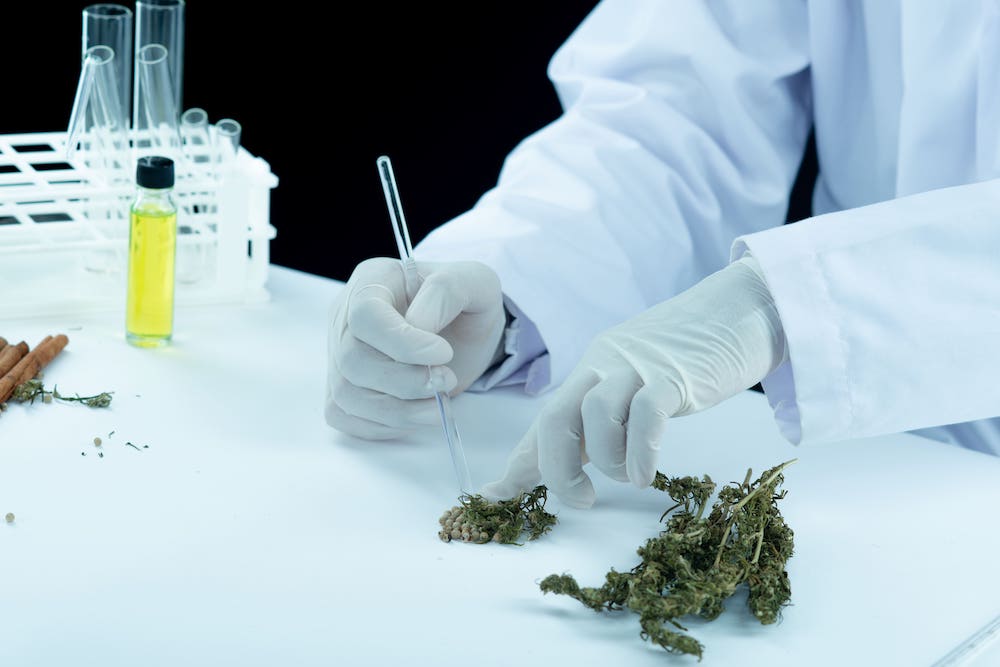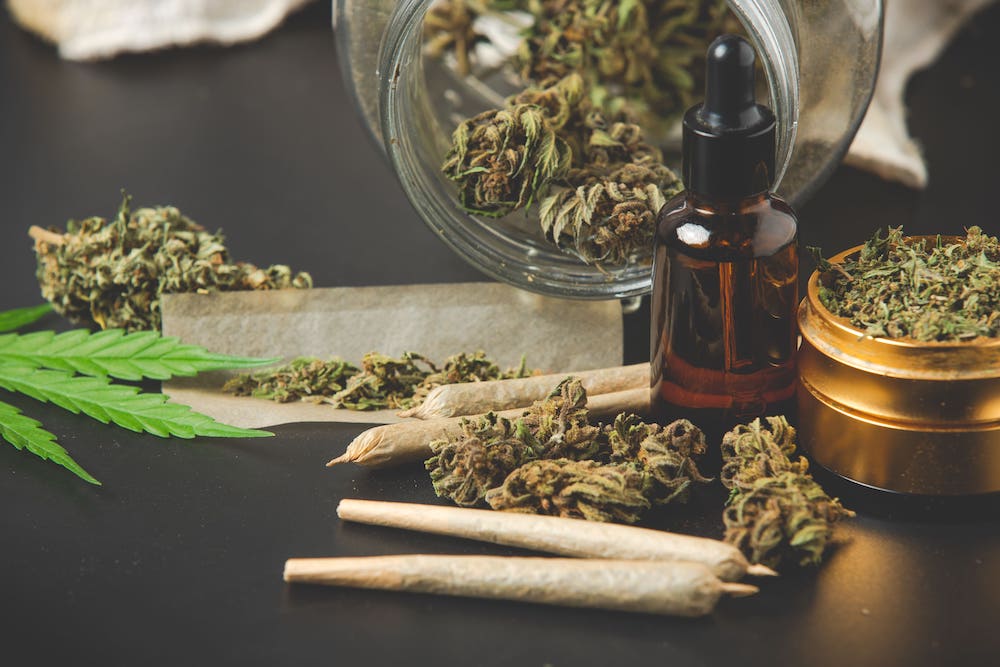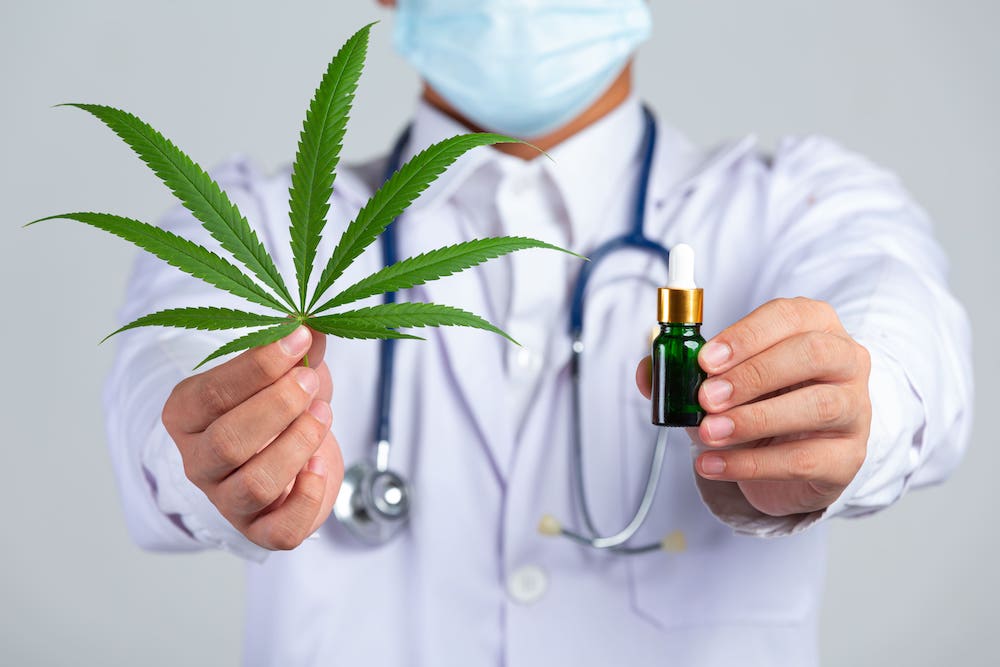If you’ve been looking into cannabis on the web, or if you’re part of a cannabis-using crowd, you’ve undoubtedly heard about terpenes and how important they are. Currently, this group of chemicals is ascribed nearly mythical properties and benefits that are said to be the basis of how different strains of cannabis work. Let’s take a look at what they are, where they come from, and what we really know about what they do.
First, let’s define what we’re talking about. Terpenes, or more accurately, terpenoids are a broad range of chemicals found in plants that are partially responsible for the smell of those plants and their flowers. These chemicals are not unique to cannabis – they are found throughout the plant kingdom. Many terpenes are readily available in bottles from chemical supply houses and used commercially for purposes ranging from flavorings to chemical solvents. A common chemotherapeutic agent, Taxol, is a terpenoid.
Terpenes are divided into categories based on their weight: mono-terpenes are light and volatile (easily evaporate), sesqui-terpenes are heavy and less prone to evaporation. This turns out to be important in how cannabis is extracted and commercial cannabis product made.
It is commonly said that terpenes are what make various “strains” (actually cultivars) of cannabis different. Further, it is commonly said that these differences lead to differences in effect and benefit of the various strains.
While it is likely true that differences in terpenes change the flavor and aroma of cannabis, there is little evidence to support these differences causing differing medical outcomes in humans. When we examine various strains we find that they all contain the same terpenes and that they don’t vary that much. Interestingly, the same can be said for cannabinoids, leading to the conclusion that the current idea that you should pick a strain based on your use is not actually important. What is more important is the dose, method of administration, and timing of use.

Yet, there is a lot of pre-clinical research (not in humans yet) on both terpenes and cannabinoids. Some of the most interesting research being done in Israel by Dr. David Meiri shows that different strains can kill different cancer cells (in culture) and not others – meaning that some cancers die from some strains but not others. This specificity suggests that, whether it is the cannabinoids or terpenes or something else, there is something to the idea that strains matter. We just don’t know what those factors are yet, and whether this has any meaning as a treatment in humans. More to come.
It also fair to say that since these strains don’t seem to influence medical outcomes in humans, that the future of using cannabis derivatives therapeutically will involve recombining these chemicals in a pharmaceutical manner to get best benefit.
Of the terpenes in cannabis, here are a few of the more commonly known ones and what we really know about them:
Limonene
- Limonene seems to have some anti-cancer properties
- May help wheezing in asthma
- Can be used in medications to help other drugs be better absorbed by the body
Myrcene
- Myrcene has shown promise as anti-oxidant, anti-inflammatory, and anti-anxiety
- Is used in Germany as sleep aid
- Commonly derived from hops (same stuff used to make beer)
𝛂-Pinene
- 𝛂-Pinene enhances sleep
- Has potential anti-cancer effects in ovarian and osteosarcoma models (cell culture)
ß-Caryophylline
- ß-Caryophylline has shown promise as anti-oxidant, anti-inflammatory, anti-bacterial
- Good evidence that it helps with pain (rodents)
- May have some benefit for metabolic syndrome and wound healing
- ß-Caryophylline is known to stimulate the CB2 receptor
Linalool
- Linalool is commonly felt to be relaxing – it is the main terpene in Lavender
- Shows promise as analgesic, anti-oxidant, antibacterial, anti-depressant
- Can be used in medications to help other drugs be better absorbed by the body

So what does all this mean to us? Well, very little at this point. It’s very exciting stuff if you’re a science nerd like myself, but we nerds also know that what happens in mice or cell culture has very little to do with humans and much more study is necessary. You just can’t buy into the idea that the terpenes in cannabis make a difference.
Moreover, as I mentioned at the beginning, terpenes are often quite volatile and are usually lost through the cannabis extraction process. This means that most edibles, which work just fine if used correctly, contain little to no terpenes. So, it’s hard to say that the benefit of cannabis is dramatically influenced by the terpenes. Some companies have been re-capturing the terpenes lost in the extraction process and putting them back into the edibles they manufacture. It’s not clear that this leads to better performance of their product. It certainly leads to better marketing hype, but we’re not influenced by marketing hype, are we?
As of now, my advice is to ignore strains and pay little attention to the discussion of terpenes, except if you want to geek out on the research. For medical purposes, instead seek tested, safe cannabis either as medium THC flower or as edibles as recommended by your cannabinoid specialist.
Consult with a Qualified Boston Medical Marijuana Expert Today
Those considering using THC, CBD, or any type of medicine found in cannabis to help manage their condition should consider speaking to a trained medical expert who is knowledgeable about using cannabis therapeutically. Massachusetts medical marijuana doctor Jordan Tishler, M.D. sits on the faculty of Harvard Medical School and has years of experience helping patients treat pain and other ailments using cannabis. He and the team at InhaleMD stand ready to assist patients in determining whether medical marijuana is right for them. For more information, or to set up a virtual consultation with the team at InhaleMD, call us at (617) 477-8886 today.

